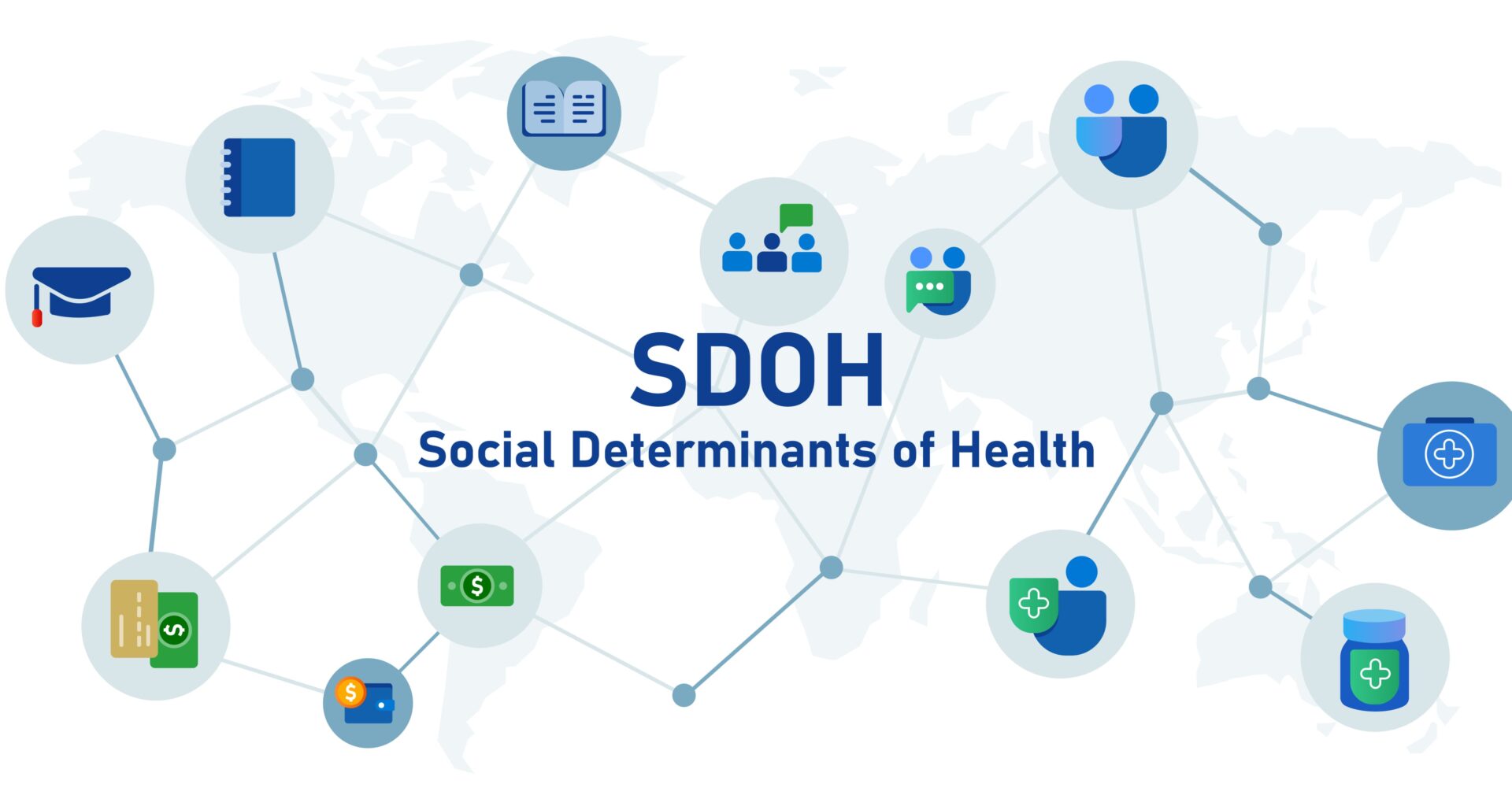Why do some people live significantly longer, healthier lives than others? The answer lies beyond traditional medicine in a complex web of factors called social determinants of health. The evident differences in health outcomes among different groups of people in our society are undeniable. A recent study by the Commonwealth Fund revealed that adults in the lowest income quartile live ten fewer years than those in the highest. This alarming gap underscores the critical role of social determinants of health (SDOH) in shaping health outcomes and achieving accurate health equity.
Content Index:
- Demystifying social determinants of health
- SDOH and the pursuit of health equity
- Illustrating the impact of SDOH – a closer look
- Building a more equitable healthcare landscape
Demystifying Social Determinants Of Health
SDOH encompasses the social and economic conditions that influence an individual’s health status throughout their life course. These factors extend far beyond traditional medical care and encompass the environments where people are born, live, learn, work, play, worship, and age. Examples of SDOH include income, education level, access to healthy food and quality healthcare, social support networks, and the physical environment of one’s community.
The real-life implications of these determinants are significant, directly affecting health outcomes. For instance, individuals with lower socioeconomic status may struggle to access nutritious food, leading to a higher risk of diet-related chronic diseases like diabetes and heart disease. Moreover, the lack of quality healthcare in underserved communities can worsen existing health conditions and delay necessary preventive care.
SDOH And The Pursuit Of Health Equity
Health equity, a fundamental principle of public health, points that everyone has a fair and just opportunity to attain their full health potential. However, SDOH creates a significant impediment to achieving this goal. Disadvantaged populations often face a constellation of social and economic factors that place them at a disadvantage when it comes to health.
In recent times, there has been an increase in attention given to SDOH in healthcare policy and research. This is due to the growing recognition of the disparity they cause. Public health initiatives are moving away from a purely clinical approach and are now addressing these fundamental determinants. This shift highlights the importance of a multi-sectoral approach that requires collaboration between healthcare organizations, policymakers, community leaders, and social service agencies.
Illustrating The Impact Of SDOH – A Closer Look
The impact of social determinants of health on health outcomes is evident across various health conditions. Let’s explore two examples:
Childhood Education and Chronic Disease: Research by the American Journal of Public Health indicates that a lower level of education is associated with an apparent risk of developing chronic diseases in later life. This association can be attributed to factors like limited health literacy, difficulty understanding preventive measures, and increased stress levels associated with lower socioeconomic status.
Social Isolation and Mental Health: Social support networks are crucial to mental well-being. Conversely, social isolation, a common SDOH factor, has been connected with a higher chance of depression, anxiety, and even cognitive decline. This underscores the importance of addressing social isolation through community programs and initiatives fostering social connection.
[Also read: Understanding Mental Health’s Impact On Healthcare Workers And Patients]Building A More Equitable Healthcare Landscape
Addressing SDOH is fundamental to creating a truly equitable healthcare system. Here are some potential solutions that affirm exploration and implementation:
Community-Based Health Programs: These programs can provide residents with access to healthy food options, nutrition education, and fitness classes, promoting healthier lifestyles within underserved communities.
Income Inequality Initiatives: Policies addressing income disparity can empower individuals and families to meet their basic needs, invest in preventive care, and access healthier living environments.
Improving Access to Quality Housing: Safe, affordable housing with adequate sanitation and pest control contributes significantly to overall health and well-being. Policies aiming to increase access to such housing can play an instrumental role in catering to the health disparities.
Bottom-line
The complex network of social determinants has a profound impact on the health outcomes of individuals and communities. While healthcare is an important factor, achieving health equity requires a broader approach that addresses underlying social and economic factors. It is crucial that healthcare professionals, policymakers, community leaders, and social service agencies work together to break down the barriers created by these determinants. By promoting a holistic approach to health, the healthcare industry can empower individuals and communities to reach their full health potential and create a more equitable healthcare landscape for all.
Call to Action:
Understanding SDOH is just the first step. We encourage our readers to delve deeper and learn more about specific initiatives tackling these social determinants in their communities. Additionally, consider advocating for policies that promote income equality, access to quality education, and healthy living environments. By working together, we can create a future where health equity is not just an aspiration but a tangible reality.














